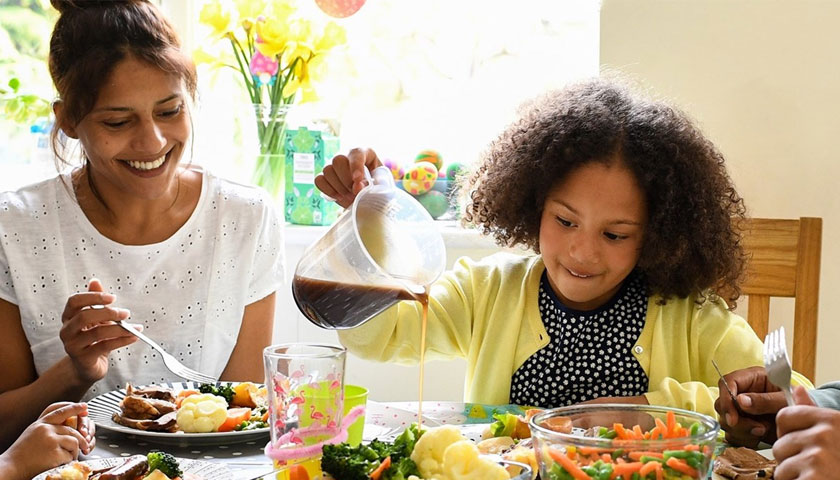New research from Tesco and environmental charity Hubbub suggests that £58.4m worth of leftovers are destined for bins in British households this Easter.
According to the research, holiday periods are a particularly problematic time for food waste with one in four people (26 per cent) throwing away more food around holidays such as Christmas, Eid, Easter and Diwali. Tesco has therefore created a dedicated No Time For Waste website to help households reduce their food waste and do their bit in the fight against climate change.
A staggering 8,490 tonnes of food is destined to go to waste this Easter according to the research. This includes an estimated 6.8m hot cross buns weighing in at 550 tonnes and costing £2.6m.
Unnecessary Easter food waste contributes to the 25 million tonnes of carbon emissions associated with food waste in the UK – the same as produced by 10 million cars.
Despite the serious climate implications of food waste, the research revealed one in four (25 per cent) feel household food waste doesn’t contribute to Greenhouse Gas emissions and climate change.
However, with the right knowledge and a little inspiration, wasting leftovers is largely avoidable, which is good news for the environment. Learnings from Tesco’s No Time For Waste Challenge trial in 2020, showed how equipping households with the right knowledge and inspiration around saving food from the bin, could help them reduce the amount wasted by up to 76% – that’s the equivalent of saving 1.46 kg of good food from waste.
So, as Britain prepares to host the COP26 UN climate conference, Tesco hopes their new step-by-step guide on www.TescoFoodWasteChallenge.co.uk will encourage people to tackle food waste this Easter.
Featuring easy to follow tips to help households avoid wasting food, the website provides simple to implement ideas. From how to plan their shop and store food; to creating simple creative recipes to use up any leftovers and avoiding waste.
Tesco hopes this new guide will encourage more people to use their leftover Easter trimmings for another meal, as currently, only 41 per cent of survey respondents say they would normally do this. Meanwhile, inspiring the fifth (19 per cent) who confess to being likely to leave their holiday leftovers in the fridge for a few days before throwing them away, to be more creative in using them up.
Across a typical Easter weekend, British households will waste:
- 9.5 million slices of leftover roast meat
- 19 million leftover potatoes
- 20 million leftover portions of vegetables
- Nearly 7 million uneaten hot cross buns
Kené Umeasiegbu, Campaigns Director at Tesco said: “Cutting food waste doesn’t have to be difficult, and it can help families to save money while making a huge contribution to fighting climate change. Households that have taken part in our food waste challenge have cut food waste by 76% by making small changes to how they plan, store and use food, so we’re keen to make the most of these learnings to help more people save food waste from the bin.”
Aoife Allen, Head of Food at Hubbub said: “The Covid crisis saw a real shift in food habits, with many people valuing their food more than ever and learning new food skills. Still, around one in four of us see a spike in waste at home during holidays such as Easter so we’re sharing some top tips for making the most of our food in these moments. Simple actions such as planning before shopping and knowing what to do with leftovers make a huge difference to our budgets and are a brilliant way to do our bit for the environment. These tips aren’t just for Easter – they will see us through the rest of the year too.”



